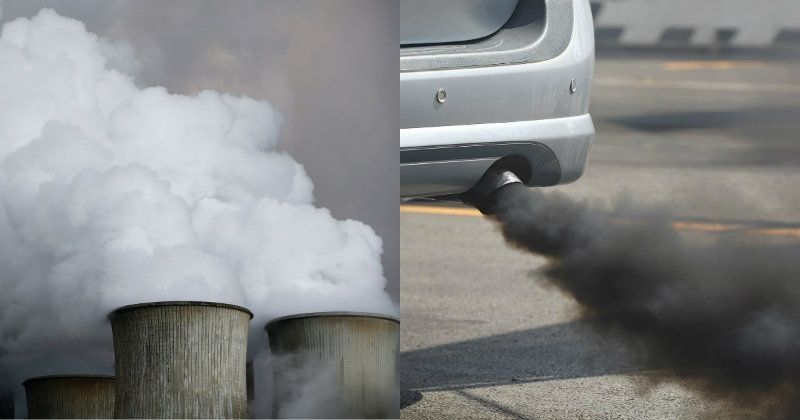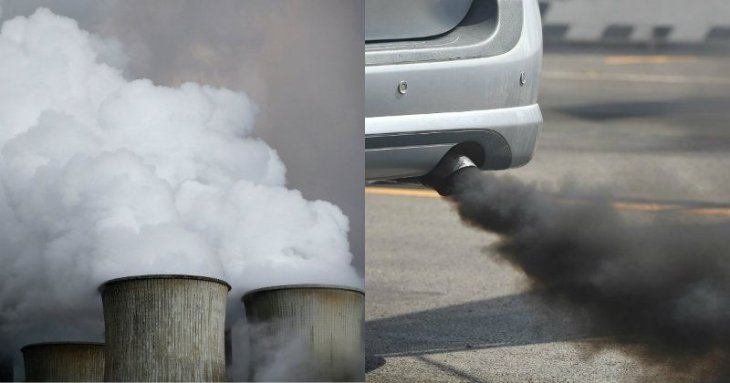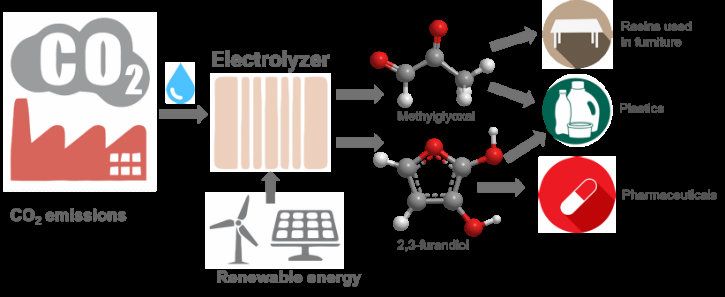This technology Turns CO2 Into Plastic And Cloth At A Low Cost
Dhir Acharya - Nov 28, 2018

A team of researchers at Rutgers University has invented a new way to convert CO2 into carbon-based products like plastic and fabrics.
- Metal Monolith In Utah Desert Mysteriously Disappeared
- Another Mysterious Metal Monolith Discovered In California
- Going Vegetarian Could Eliminate 16 Years Of CO2 Emissions By 2050
Global warming is mainly attributed to carbon dioxide gas emitted from vehicles and factories.

However, scientists at Rutgers University have found another ending for this harmful gas by turning it into resins, fabrics, plastics, as well as other products to consume.
Rutgers scientists brought this miracle to life by reversing an artificial photosynthesizing process.

The research was later published on the university website, in which they claimed besides enzymes, electro-catalysts are the first materials which are able to turn water and carbon dioxide into carbon blocks. The electrolyzer turns CO2 into carbon blocks, two of which are methylglyoxal (C3) and 2,3-furandiol (C4). We can use these building blocks to generate complex, useful products at an efficiency of 99 percent.
In the past, scientist managed to electrochemically turn carbon dioxide into ethanol, methanol, ethylene, and methane at pretty high yields. However, the process is not efficient and too expensive to implement in reality.
So, it is such an outstanding result compared to more expensive and less efficient work before.

Charles Dismukes, Distinguished Professor in the Department of Biochemistry and Microbiology and Department of Chemistry and Chemical Biology of Rutgers University, also the senior study author, said that this breakthrough is likely to open a new future where the pharmaceutical and chemical industries can produce items based carbon dioxide conversion.
In the study, researchers at Rutgers came up with a technique, in which they used five catalysts that are made of phosphorus and nickel to electrochemically convert water and carbon dioxide into a wide range of carbon-based products. This new technique appears to be economical since the catalysts are cheap and apparently available in nature.
The research team has got a patent for this new technique. Also, the scientists initiated a RenewCO2 with the aim to commercially implement this technology, as well as use the method to extract polymers at higher density for making plastic, fabric, and resins for pharmaceutical and other big industries.
Featured Stories

Features - Jan 29, 2026
Permanently Deleting Your Instagram Account: A Complete Step-by-Step Tutorial

Features - Jul 01, 2025
What Are The Fastest Passenger Vehicles Ever Created?

Features - Jun 25, 2025
Japan Hydrogen Breakthrough: Scientists Crack the Clean Energy Code with...

ICT News - Jun 25, 2025
AI Intimidation Tactics: CEOs Turn Flawed Technology Into Employee Fear Machine

Review - Jun 25, 2025
Windows 11 Problems: Is Microsoft's "Best" OS Actually Getting Worse?

Features - Jun 22, 2025
Telegram Founder Pavel Durov Plans to Split $14 Billion Fortune Among 106 Children

ICT News - Jun 22, 2025
Neuralink Telepathy Chip Enables Quadriplegic Rob Greiner to Control Games with...

Features - Jun 21, 2025
This Over $100 Bottle Has Nothing But Fresh Air Inside

Features - Jun 18, 2025
Best Mobile VPN Apps for Gaming 2025: Complete Guide

Features - Jun 18, 2025
A Math Formula Tells Us How Long Everything Will Live
Read more

ICT News- Feb 22, 2026
Which AI Model Excels at Which Task in 2026: A Comprehensive Guide
In 2026, the best AI depends on your needs: Gemini for multimodal and speed, Claude for coding and reasoning, GPT for creativity, and Grok for straightforward tech insights.

ICT News- Feb 23, 2026
It's Over for Xbox: Asha Sharma Takes Over to Ruin Microsoft Gaming with AI
It's not just a leadership change; it's the death knell for Xbox.

ICT News- Feb 21, 2026
AI Coding Agent Causes Major AWS Outage at Amazon
In a striking example of the risks associated with deploying advanced AI in critical systems, Amazon Web Services (AWS) recently faced multiple outages attributed to its own AI coding assistants.
Comments
Sort by Newest | Popular